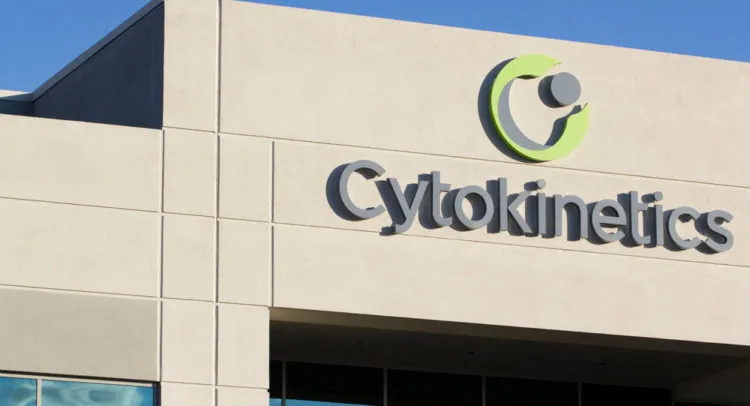
Introduction: Cytokinetics Advances CK-586 into Phase 2 Trial
Cytokinetics, Incorporated a leading biopharmaceutical company, has announced that enrollment is now open for AMBER-HFpEF, a pivotal Phase 2 clinical trial evaluating CK-586 in patients with symptomatic heart failure with preserved ejection fraction (HFpEF). This trial, named AMBER-HFpEF (Assessment of CK-586 in a Multi-Center, Blinded Evaluation of Safety and Tolerability Results in HFpEF), is designed as a randomized, placebo-controlled, double-blind, multi-center, dose-finding study that will assess the safety, tolerability, and efficacy of CK-586 in patients suffering from HFpEF.
The trial is targeting patients with symptomatic HFpEF who have a left ventricular ejection fraction (LVEF) of at least 60%, a characteristic that distinguishes this subgroup from other forms of heart failure. CK-586, the investigational drug being tested in this study, is a cardiac myosin inhibitor currently in development with the aim of addressing the unmet medical needs of this specific patient group. The drug is particularly focused on treating patients who suffer from hypercontractility and ventricular hypertrophy, both of which contribute to the worsening symptoms and prognosis associated with HFpEF.
Heart failure with preserved ejection fraction (HFpEF) is a complex and debilitating condition that affects a significant number of patients, with an estimated 50% of all heart failure cases being classified as HFpEF. This condition is typically characterized by an ejection fraction of at least 50%, which is often considered normal or near-normal. However, the key issue in HFpEF lies in the impairment of diastolic function and poor ventricular compliance, which can lead to a reduced capacity for the heart to fill with blood properly, consequently resulting in diminished cardiac output. Furthermore, HFpEF patients typically have elevated levels of NT-proBNP, a biomarker associated with heart failure, which adds to the diagnostic complexity of the disease.

Despite advances in the treatment of heart failure over recent years, patients with HFpEF continue to face significant challenges in managing their symptoms and improving their quality of life. The prognosis for these patients, especially following hospitalization, remains poor. The AMBER-HFpEF trial represents an important step in the ongoing effort to find more effective treatments for this patient population. According to Dr. Stuart Kupfer, Senior Vice President and Chief Medical Officer at Cytokinetics, the launch of this Phase 2 trial is a significant milestone for the company and underscores its commitment to developing novel therapies for specialty cardiology indications.
Dr. Kupfer stated, “We are pleased to be advancing CK-586 into a Phase 2 trial in a subset of patients with symptomatic HFpEF. Despite recent advances in available treatments, patients with heart failure with supranormal ejection fraction continue to have a poor prognosis following hospitalization. Evaluating CK-586 in this Phase 2 trial further extends the potential of our cardiac myosin-directed development platform focused on specialty cardiology indications.”
A key aspect of the AMBER-HFpEF trial is its focus on a particular subset of HFpEF patients who share characteristics with patients suffering from non-obstructive hypertrophic cardiomyopathy (nHCM). These patients typically have higher ejection fractions, thickened heart walls, and elevated cardiac biomarkers, all of which contribute to the presence of heart failure symptoms. The similarity between the two conditions—HFpEF and nHCM—provides a valuable foundation for investigating the potential therapeutic benefits of CK-586 in this context. Cytokinetics’ prior experience with aficamten, another drug in their portfolio that is being evaluated for nHCM, offers useful insights into the mechanisms that may be at play in patients with HFpEF.
Non-obstructive hypertrophic cardiomyopathy (nHCM) is another form of heart disease where patients experience thickening of the heart walls, leading to issues with the heart’s ability to pump blood efficiently. Like HFpEF, nHCM can present with elevated levels of cardiac biomarkers and symptoms of heart failure, but with the added complication of non-obstructive hypertrophy, where there is no significant obstruction to the flow of blood from the heart. The similarities between these two conditions provide an important rationale for evaluating CK-586 in the HFpEF patient population, as the drug may help address the underlying pathophysiology of both diseases.
The AMBER-HFpEF trial will assess various doses of CK-586 to determine the most effective and safest dosing regimen for patients with symptomatic HFpEF. This dose-finding approach is critical in order to understand the optimal therapeutic window for CK-586 and to identify any potential side effects or tolerability issues that may arise with the drug. As part of the trial design, patients will be randomized to receive either CK-586 or a placebo, and the outcomes will be closely monitored over the course of the study. Given the promising preclinical data and the clinical experience with other myosin inhibitors in related cardiac diseases, Cytokinetics is hopeful that CK-586 could provide meaningful improvements for HFpEF patients.
The trial design also includes the use of advanced clinical endpoints and biomarkers to assess the efficacy of CK-586. These will include measures of cardiac function, such as improvements in left ventricular end-diastolic pressure (LVEDP) and left atrial pressure (LAP), as well as functional measures such as exercise tolerance and symptoms of heart failure. Elevated NT-proBNP levels, which are a common biomarker of heart failure, will also be used to assess treatment efficacy in the context of CK-586.
One of the most challenging aspects of treating HFpEF is the fact that many existing heart failure therapies are designed for patients with reduced ejection fraction (HFrEF), and their effectiveness in HFpEF is limited. While there have been some advances in medications for HFpEF, such as the use of SGLT2 inhibitors, these treatments have not yet fully addressed the complexities of the disease. As a result, the search for targeted therapies like CK-586 continues to be an area of intense interest in the field of cardiology.
Cytokinetics’ development of CK-586 represents an innovative approach to addressing the underlying causes of heart failure in patients with preserved ejection fraction. By targeting cardiac myosin, CK-586 has the potential to modify the contractile behavior of the heart muscle and improve overall cardiac performance. If successful, CK-586 could provide a much-needed option for patients suffering from symptomatic HFpEF, a condition that remains challenging to manage with current treatment options.
The AMBER-HFpEF trial is expected to provide important insights into the efficacy and safety of CK-586 in the treatment of HFpEF. If the trial results are positive, CK-586 could become a key therapeutic option for a patient population that currently has few treatment alternatives. Cytokinetics remains committed to advancing its pipeline of cardiac myosin inhibitors and is optimistic that the outcomes of this trial will further demonstrate the potential of its innovative approach to treating heart failure.
The initiation of the AMBER-HFpEF Phase 2 trial marks a significant step forward in the pursuit of better treatments for HFpEF. Cytokinetics is leading the charge in the development of CK-586, a novel cardiac myosin inhibitor, and the trial’s design reflects a comprehensive and targeted approach to addressing the needs of HFpEF patients. The hope is that this trial will provide valuable data that will support the continued development of CK-586 and potentially offer a new therapeutic option for those affected by this challenging and poorly understood condition.





